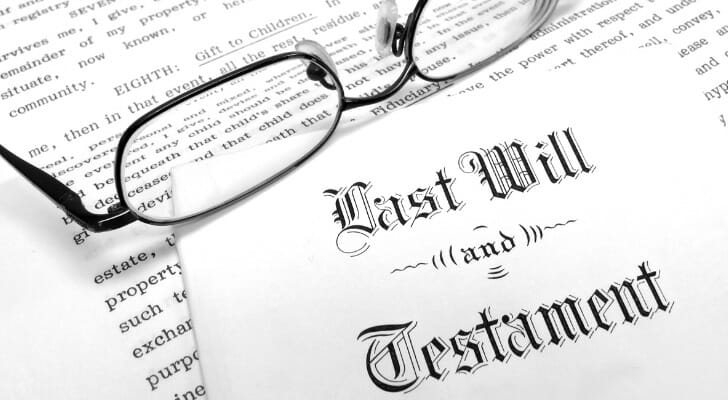Gift planning can be a key element in an estate plan. If it is done properly, an estate plan can ensure that your assets are given to the people and organizations you care about and it also minimizes the impact of taxes and other costs on your estate. It’s important to make sure your personal assets and potential tax events are taken into consideration before moving forward with your estate plan and any gifting you want to commit to. Planning out your estate can be difficult if you’re not a professional so you may want to consider working with a financial advisor to make sure you’ve taken the right things into consideration.
What Is Gift Planning?
Gift planning is a person’s major donation, before or after death, of an asset to a nonprofit or other organization. Sometimes it’s referred to as planned giving or legacy giving. Planned giving is not typically understood to include discretionary donations, such as donations to an organization’s annual fund drive.
Gift planning doesn’t have a dollar amount restriction and need not be based on your income. Anyone can set up gift planning as part of an estate plan. Gift planning is like a memorial fund. But a memorial fund could be set up and funded through a one-time donation or fundraiser, while legacy giving manages to give gifts on an ongoing basis.
What’s Included in Gift Planning
When most people donate to a charity or nonprofit organization, they give extra cash based on what they’ve earned that year. But in gift planning, you can donate other valuable assets. Examples include cash, personal property, securities such as stocks (appreciated or otherwise), life insurance, collectibles like art, jewelry, partnership interests or real estate.
Bequests are one of the most popular ways people donate through gift planning. A general bequest comes from the assets of an estate, while demonstrative bequests come from sources like a bank account. Gift planning can also include annuities and trusts.
Why You Should Consider Gift Planning
Gift planning can often be a crucial piece of income for the recipient organization, which may rely on that gift to launch new initiatives, maintain an existing initiative or even stay open. Aside from the generosity of giving to an organization, you stand to benefit from gift planning.
While you’re alive, you can contribute appreciated property, like stock, bonds and other securities and receive a charitable deduction for the full market value of that asset. Along with that, you won’t pay any capital gains tax when transferring. When you make a contribution after you die, the gift doesn’t come with a lifetime income tax deduction, but it is exempt from estate taxes.
How to Use Gift Planning in an Estate Plan
When creating your estate plan, you’re taking steps to ensure your assets are handled as you wish after you’ve passed. Many times, estate planning is dividing up your assets among your loved ones, like friends and family. But it also includes giving to organizations you care about through gift planning.
The more assets you have, the more crucial it is to handle estate planning as early as you can. You might need to enlist the help of a financial advisor or an attorney who specializes in estate planning to help you get and stay on track. Alternatively, you could engage the services of a chartered advisor in philanthropy.
Since you’re creating an estate plan that includes gift planning, you’re making a legacy gift to be contributed after you pass. Keep in mind that not all organizations can accept planned giving. Before you set up your estate plan to include gift planning to an organization, check with them first to see if it’s allowed. Sometimes, very small nonprofits don’t have the capacity to handle legacy giving.
While gift planning might be an afterthought, do your best to include it while drawing up your will and creating an estate plan. And try to include the organization you’re going to leave the gift to along in the process. That way, when the time comes to receive the gift, the group isn’t surprised by what they receive and is equipped to handle it.
Consider a qualified charitable distribution (QCD) as part of your gift planning. A QCD is the withdrawal of funds from an IRA with the intention of donating them directly to a qualified charity. There are tax benefits that go along with this strategy.
You can use QCDs when you’re taking the required minimum distribution in retirement. Rules governing a QCD also allow people who hold an IRA to arrange for that money to become a gift after they die. After an IRA owner’s death, a beneficiary of an inherited IRA who has reached age 70½ can make a QCD with that money.
The Bottom Line
If you have the desire and assets to set up gift planning, you might want to add it to your estate plan. You and the nonprofit can both benefit from planned gifts. You and your estate can get a sizable tax break. Plus, you may be able to gift part of your estate to help build a cause that is important to you and give you a sense of pride knowing you’re leaving part of your assets to help that cause progress.
Tips for Estate Planning
- Consider talking to a financial advisor about making gift planning part of your estate planning. If you don’t currently have a financial advisor, finding the right advisor doesn’t have to be hard. SmartAsset’s free tool matches you with up to three financial advisors who serve your area, and you can interview your advisor matches at no cost to decide which one is right for you. If you’re ready to find an advisor who can help you achieve your financial goals, get started now.
- Before you can dole out who gets what, you’ll need to take inventory of what you have, including things like securities and other investments. You might want to create a spreadsheet or other document that has a list of every asset you have and its value at the time. Make sure you share this document with others so they know what to keep track of. Then consider using our free estate planning checklist to make sure you don’t forget any important steps.
Photo credit: ©iStock.com/Rawpixel, ©iStock.com/Kameleon007, ©iStock.com/eric1513


